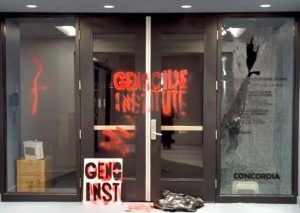Just as season 4 of Homeland is hitting its stride on Super Channel, it’s worth noting that season 2 of Prisoners of War (Hatufim), the Israeli series that spawned the U.S. series, is now out on DVD (and currently also airing on Super Channel).
It’s also worth noting that if the two shows had little in common other than their genesis in season 1, by the second season, this difference is even more pronounced.
Season 1 of Prisoners of War focused on the return to Israel of two Israel Defence Forces soldiers who were captured in Lebanon 17 years earlier. As season 1 progressed, we learned that a third solider in captivity with them, believed to have been killed, is likely still alive and in captivity.
Season 2 begins horrifically with a terrorist raid on an Israeli school some 23 years ago. It’s the first day of school for Grade 1 student Noni, who ends up watching his father getting shot by the terrorists. This sequence is likely one of the most tense opening scenes I’ve ever seen.
Unfortunately, the rest of the 14 one-hour episode series doesn’t hold up to this frantic pace for long and gets bogged down in a highly convoluted story and at times a plot worthy of a daytime soap opera.
There are two major plot lines. The first centres on the two prisoners, Uri and Nimrod, from the previous season, still picking up the pieces of their lives. Uri has now gotten back with his old fiancée, who had left him for his brother while he was in captivity for 17 years. Nimrod, meanwhile, has separated from his wife and two kids.
The second plot line is about Amiel, the third prisoner. We find he now seems to be free in Syria, calls himself Yussuf and has converted to Islam. He is married to an iman’s daughter and is a rising star in a terrorist cell in Lebanon, the same organization that brutally tortured him and his two comrades years ago. This is by far the more intriguing of the two stories, but it does get confusing.
Acting upon information provided by Nimrod and Uri, Israeli intelligence believes Amiel is alive and likely now working for a notorious terrorist group. Complicating things is the existence of another off-the-books intelligence outfit who have always known he is alive and is secretly working on his extraction. Or are they?
The question is, has Amiel been turned by the terrorists, or is he a double agent working for Israel? Does this rogue intelligence outfit want to extract Amiel or execute him? Is Amiel planning the kidnapping of an Israeli soldier, or is this all part of the plan conceived by the rogue intelligence unit? How do the chief terrorist’s son’s math books fit into the picture? And what is this Operation Judah? The viewer is left in doubt until the very end.
The middle of this season flips back and forth between the slower, soapy side (Nimrod’s wife starts dating her daughter’s psychiatrist, Uri may have cancer) and the faster paced Amiel plot. The series also flips back and forth between the present and flashbacks to the time when the three of them were still in captivity. We learn what their unit was doing in Lebanon at the time of their capture and how it all ties into the main plot and the mysterious Operation Judah.
The characters in Prisoners of War are a lot more developed than their counterparts in Homeland, but the Israeli series lacks the sleekness and high-paced tension of the American version. However, in the last few episodes, as it begins to all come together, Prisoners of War can be as nail-biting as anything else on TV.
“A lot of things are unclear,” one of the characters says in the final episode of this psychological drama. But if you stick with it, the payoff is worth it at the end.






